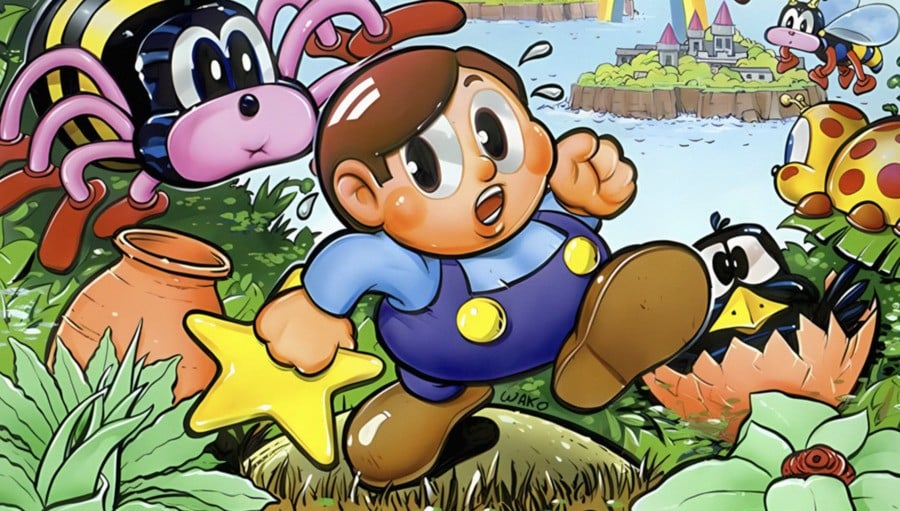
The fact that Taito's Rainbow Islands is coming to Hamster's Arcade Archives series is something to celebrate, but long-standing fans will have one burning question: what version of the theme tune will it use?
In case you didn't know, the main theme used in the arcade version of the game was changed for the NES port, as it was felt that it was based a little too much on "Over the Rainbow" from The Wizard of Oz, composed by Harold Arlen and Yip Harburg. According to Retro PM, Taito was concerned that it might receive a copyright challenge, so it altered the music, using a new tune created by its in-house music team, Zuntata.
Here's the original arcade music, in case you need reminding:
And here's the song as it appears in the aforementioned 1939 classic:
And here's the alternative theme tune, which was first used in the NES port:
The NES got not one but two ports of Rainbow Islands, with the Taito version being exclusive to Japan and North America, while Europe got a different version, coded under license by Ocean. It also used different music:
Many of the home ports used the original music – including the ZX Spectrum, C64, Mega Drive, PC Engine CD and Amiga versions – but others, such as the Master System, PlayStation and Saturn ports, used the alternate music. Oddly, the 2000 Japan-only WonderSwan game Rainbow Islands: Putty's Party uses the "Over the Rainbow" inspired music, which might lead you to assume that, by the turn of the millennium, Taito was less concerned about any legal tussles it might get into, right? Wrong.
The 2001 Game Boy Color port was released with an entirely new soundtrack, while the version on Taito Legends (PS2 / Xbox) has a butchered version of the theme song which removes the bits that sound like "Over the Rainbow", making for a very unusual listening experience.
Fast forward to the present, and it has been confirmed that the Arcade Archives version of the game won't be using the iconic "Over the Rainbow" theme – instead, it will adapt the alternate music first used in the NES port, with arranged for YM2151 sound chip by Yukiharu Urita. Boo. (Or indeed, yay, if you grew up with the NES version.)
